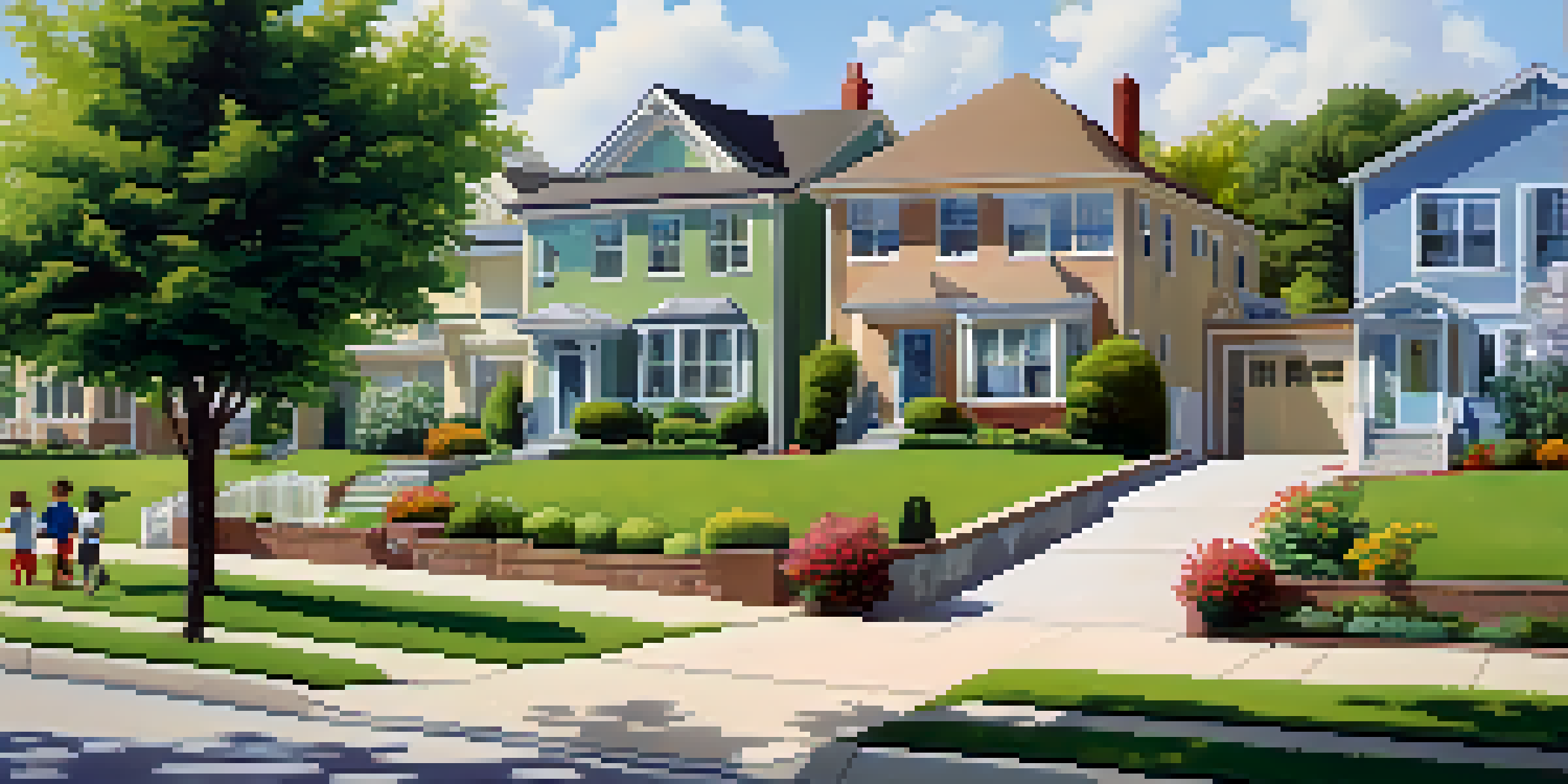Potential Legal Issues with Homeowners Associations

What is a Homeowners Association and Its Purpose?
A Homeowners Association (HOA) is a governing body in a residential community that enforces rules and regulations, often to maintain property values. These associations are typically formed by developers and are designed to manage shared spaces and amenities, providing a sense of community. The HOA often collects fees from homeowners to fund maintenance and improvements.
A house is made of walls and beams; a home is built with love and dreams.
While HOAs aim to create a pleasant living environment, they can sometimes lead to disputes among residents. This can stem from differing opinions on community rules or how funds are allocated. Understanding the role of an HOA is crucial for homeowners to navigate potential conflicts effectively.
It's important for homeowners to familiarize themselves with the bylaws and covenants of their specific HOA. This knowledge not only helps in understanding their rights but also prepares them for any legal issues that might arise.
Common Legal Disputes with Homeowners Associations
Disputes between homeowners and HOAs can manifest in various ways, from rule enforcement to fee collections. Common issues include disagreements over property modifications, such as fences or paint colors, which can lead to legal action. Homeowners may feel that the HOA is overstepping its boundaries, while the association may argue they are upholding community standards.

Another frequent point of contention is the collection of dues and assessments. Homeowners might contest the amount or the necessity of certain fees, leading to potential legal battles over unpaid dues. Such disputes can escalate quickly, resulting in liens against properties or even foreclosure in severe cases.
Understanding HOA Roles and Rules
Homeowners should familiarize themselves with HOA bylaws to navigate potential conflicts effectively.
Understanding these common disputes can help homeowners anticipate challenges and seek resolutions before they escalate. Open communication with the HOA can often prevent misunderstandings and foster a more harmonious living environment.
Legal Protections for Homeowners Against HOAs
Homeowners have certain legal protections against their HOAs, primarily based on state laws and the association’s governing documents. These protections can include the right to challenge unreasonable rules or fees. Homeowners can also seek legal recourse if they believe the HOA is acting outside its authority or not adhering to its own rules.
The strength of the team is each individual member. The strength of each member is the team.
Additionally, many states have laws that require HOAs to provide transparency regarding their financial dealings. Homeowners can request to view financial records and budgets, ensuring that funds are being used appropriately. This transparency helps to safeguard homeowners from potential abuses of power.
It's essential for homeowners to know their rights and the legal avenues available to them. Consulting with a lawyer who specializes in HOA law can provide clarity and guidance when disputes arise, ensuring that homeowners are adequately protected.
The Role of HOA Governing Documents in Legal Issues
HOA governing documents, including the Declaration of Covenants, Conditions, and Restrictions (CC&Rs), play a pivotal role in legal matters. These documents outline the rules and regulations that govern the community and the responsibilities of both the HOA and homeowners. When disputes arise, these documents often serve as the foundation for legal arguments.
Understanding these governing documents is crucial for homeowners. They detail everything from landscaping requirements to noise restrictions, and knowing these rules can prevent unintentional violations. Homeowners should regularly review these documents and stay informed about any amendments.
Dispute Resolution Strategies
Engaging in open communication and utilizing established dispute resolution processes can help homeowners address conflicts with their HOA.
In legal disputes, the interpretation of these documents can be contentious. Courts often rely on the CC&Rs to determine whether the HOA's actions are justified, highlighting the importance of clarity and specificity in these governing documents.
Potential Consequences of Disregarding HOA Rules
Ignoring HOA rules can lead to a variety of consequences, ranging from fines to legal action. Homeowners who fail to comply with community standards may find themselves facing penalties, which can accumulate over time. This can create a snowball effect, making it more challenging to resolve issues down the line.
In some cases, the HOA may pursue legal action against non-compliant homeowners, which can lead to costly court fees and potential liens on properties. This not only affects the homeowner financially but can also impact their credit score, making it harder to sell or refinance their home.
To avoid these consequences, homeowners should be proactive in understanding and adhering to HOA rules. Regular communication with the HOA and participation in community meetings can also help homeowners stay informed and engaged.
Navigating the Dispute Resolution Process with HOAs
When disagreements arise with an HOA, navigating the dispute resolution process is vital. Many associations have established procedures for addressing conflicts, which often include mediation or arbitration. These methods can provide a more amicable resolution compared to lengthy court battles, saving time and money.
Homeowners should first review their HOA's governing documents to understand the prescribed dispute resolution process. Engaging in open dialogue with the HOA can sometimes resolve issues before they escalate into formal disputes. Documenting all interactions can also be beneficial if the situation requires further action.
Importance of Community Engagement
Active participation in HOA activities fosters a sense of community and can prevent legal issues from escalating.
If mediation fails, homeowners may consider legal action. However, it's generally advisable to exhaust all other options before pursuing litigation, as this can be a lengthy and costly process. Seeking legal advice can help homeowners understand their best course of action.
The Importance of Community Engagement in HOAs
Active community engagement can significantly mitigate potential legal issues with HOAs. When homeowners participate in meetings, committees, and discussions, they are more likely to stay informed about rules and changes that affect them. This involvement helps to foster a sense of community and shared responsibility among residents.
Moreover, engaged homeowners can advocate for changes that benefit the community, addressing concerns before they escalate into disputes. This proactive approach can lead to more harmonious relationships with the HOA and a greater understanding of community goals.

Finally, a well-informed and engaged community can promote transparency and accountability within the HOA. When homeowners work together, they can ensure that the association operates fairly and in the best interest of all residents.